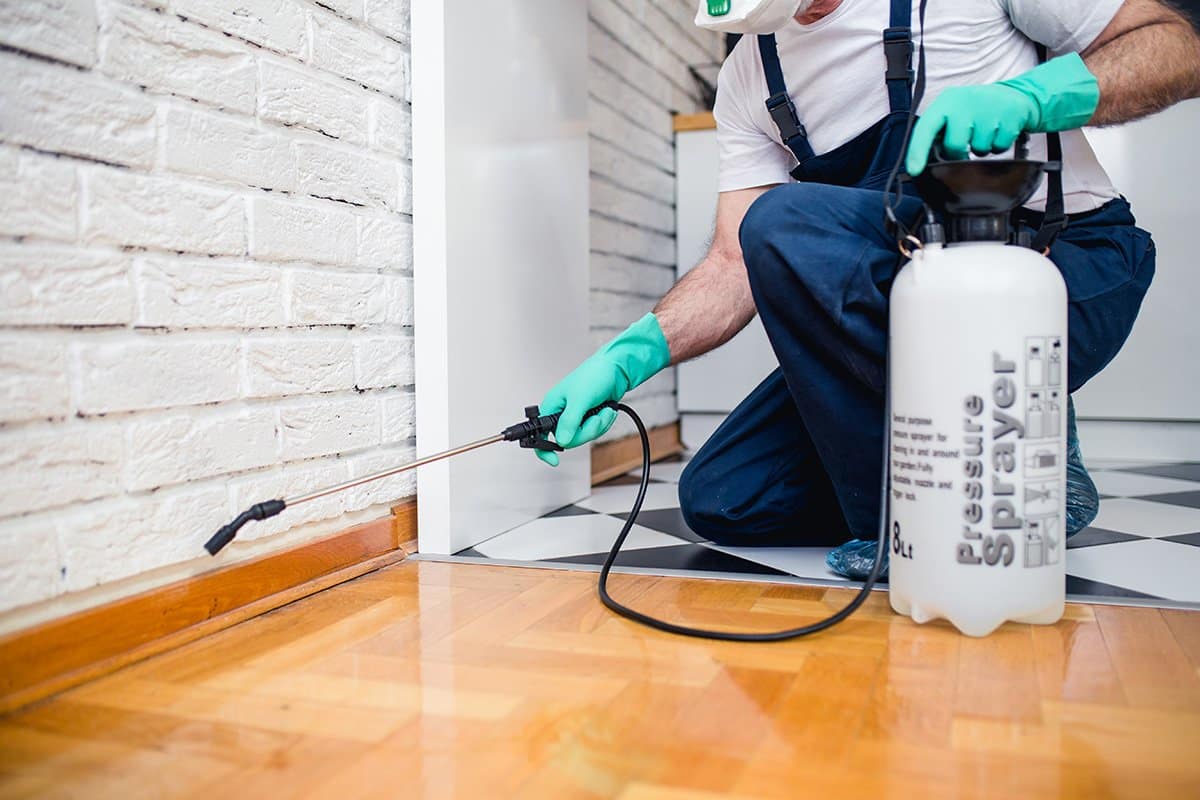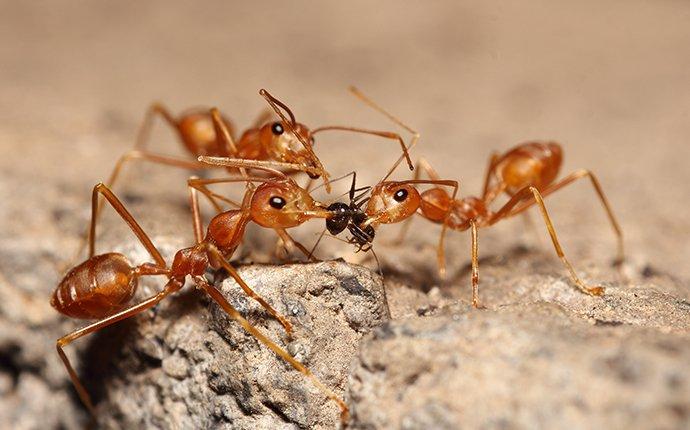Budget-friendly Ant Control Solutions: Keep Your Room Ant-Free
Wiki Article
Environmental Influence of Insect Control: Balancing Effectiveness With Sustainability
The environmental influence of insect control is an essential problem that calls for a fragile equilibrium between attaining efficiency in managing insects and making certain sustainability of our ecosystems. From the usage of hazardous chemicals that permeate into our soil and water to the unintended consequences on non-target varieties, the consequences of traditional pest control methods are significant.Damaging Chemicals in Bug Control
The utilization of dangerous chemicals in parasite control postures significant environmental and health and wellness dangers that warrant careful factor to consider and mitigation methods. Pesticides, herbicides, and pesticides are typically used to get rid of insects, but their extensive application can bring about unplanned consequences. These chemicals can infect dirt, water resources, and the air, influencing not just the targeted bugs however additionally helpful bugs, wild animals, and human beings.
To deal with these dangers, integrated insect administration (IPM) methods are being advertised as a more sustainable alternative. IPM involves a combination of methods such as organic control, habitat control, and the targeted use pesticides as a last hotel (ant control davidson nc). By embracing an all natural method to pest control, we can decrease the environmental and health and wellness effects related to hazardous chemicals while properly taking care of pest populations
Impact on Non-Target Species
Taking into consideration the unexpected repercussions of pest control methods, the effect on non-target varieties is a vital element that requires detailed examination. While bug control actions intend to target details bugs, other microorganisms in the environment may be inadvertently affected. Non-target varieties, including advantageous bugs, birds, mammals, and also plants, can endure straight or indirect damage from chemical applications or biological control approaches.Pesticides made to battle a certain bug parasite might hurt pollinators like or natural killers such as ladybugs. Organic control agents, if not species-specific, can present threats to unintentional targets, disrupting the environmental balance.
To alleviate the effect on non-target varieties, integrated pest administration (IPM) methods that highlight a holistic technique to pest control are advised. These methods focus on the usage of eco-friendly practices, lessening damage to useful organisms while effectively managing pest populations. Conducting comprehensive risk analyses and keeping track of the end results of insect control efforts are necessary steps in safeguarding non-target species and promoting total community health and wellness.
Dirt and Water Contamination
Unintentional ecological repercussions of pest control methods extend past affecting non-target varieties, with significant effects for soil and water contamination - ant control. Pesticides, herbicides, and chemical fertilizers utilized in insect control can seep into the dirt and pollute groundwater, positioning a threat to both terrestrial and water ecological communities.Water contamination is an additional crucial problem associated with pest control practices. To reduce dirt and water contamination from parasite control activities, integrated insect monitoring strategies that prioritize sustainability and decrease chemical inputs are critical.
Air Pollution From Pesticide Use
Direct exposure to air-borne chemicals during agricultural applications positions a considerable concern for air pollution control measures. In addition, chemical drift, where pesticides are lugged by the wind to unintended areas, can lead to the contamination of neighboring communities and water bodies.
Techniques for Sustainable Pest Control
In the realm of agricultural methods, carrying out lasting insect control methods is critical for maintaining eco-friendly balance and guarding crop yields. Sustainable insect control stresses the use of environmentally friendly approaches to take care of bug populaces properly while lessening harm to non-target organisms and ecological go now communities. Integrated Parasite Administration (IPM) is a commonly taken on technique that combines biological, social, physical, and chemical control methods to achieve long-term bug monitoring solutions.Plant turning and diversification are additionally reliable strategies to disrupt pest life cycles and develop less desirable conditions for insects to thrive. Inevitably, by integrating these lasting parasite control approaches, farmers can achieve an equilibrium between pest management efficiency and environmental stewardship.
Conclusion
Finally, the environmental impact of bug control approaches should be thoroughly thought about to balance performance with sustainability. Dangerous chemicals utilized in pest control can lead to dirt and water contamination, air contamination, and damage non-target varieties - termite control services. It is essential to apply lasting insect control methods to reduce these unfavorable effects on the setting and advertise a much healthier community for future generationsBy adopting an alternative technique to pest control, we can lessen the ecological and wellness effects connected with damaging chemicals while properly handling pest populations.

To alleviate the air pollution created by pesticide use, it is essential to embrace incorporated bug monitoring methods that prioritize the use of non-chemical pest control techniques, such as crop turning, all-natural killers, and immune crop selections. Lasting parasite control emphasizes the usage of environmentally friendly techniques to manage parasite populations efficiently while minimizing harm to non-target microorganisms and ecosystems. Integrated Bug Management (IPM) is an extensively adopted strategy that combines organic, social, physical, and chemical control approaches to attain long-term insect management services.
Report this wiki page